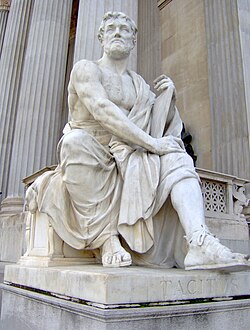Tacitus Quote
Related Quotes
Savers have to be punished so debtors can be saved.Why? Because if debtors are rescued, that makes it possible for more debts to be issued in the future.And why is that important? Because the banking...
Chris Martenson
Tags:
banking, banking system, banks, corrupt, corruption, debt, debtor, economics, economy, finance
Most insensible, corrupt, cheap, disrespectful young girls run after bad, rude, cocky, nonsensical boys, but a mature, educated, thoughtful, virtuos lady opts for a wise, well breed, experienced, humb...
Michael Bassey Johnson
Tags:
adult, adulthood, background, bad boys, callow, cockiness, corruption, disrespect, down to earth, emptiness
While police internal affairs is allowed to protect corrupt police officers that engage in unethical behaviors, illegal activities or murder, there will always be a genuine mistrust by the common peop...
Steven Magee
Tags:
activities, affairs, allowed, always, behaviours, common, common man, corrupt, corruption, engage
About Tacitus
Publius Cornelius Tacitus, known simply as Tacitus ( TAS-it-əs, Latin: [ˈtakɪtʊs]; c. AD 56 – c. 120), was a Roman historian and politician. Tacitus is widely regarded as one of the greatest Roman historians by modern scholars.
The surviving portions of his two major works—the Annals (Latin: Annales) and the Histories (Latin: Historiae)—examine the reigns of the emperors Tiberius, Claudius, Nero, and those who reigned in the Year of the Four Emperors (69 AD). These two works span the history of the Roman Empire from the death of Augustus (14 AD) to the death of Domitian (96 AD), although there are substantial lacunae in the surviving texts.
Tacitus's other writings discuss oratory (in dialogue format, see Dialogus de oratoribus), Germania (in De origine et situ Germanorum), and the life of his father-in-law, Agricola (the general responsible for much of the Roman conquest of Britain), mainly focusing on his campaign in Britannia (De vita et moribus Iulii Agricolae). Tacitus's Histories offers insights into Roman attitudes towards Jews, descriptions of Jewish customs, and context for the First Jewish–Roman War. His Annals are of interest for providing an early account of the persecution of Christians and one of the earliest extra-Biblical references to the crucifixion of Jesus.
The surviving portions of his two major works—the Annals (Latin: Annales) and the Histories (Latin: Historiae)—examine the reigns of the emperors Tiberius, Claudius, Nero, and those who reigned in the Year of the Four Emperors (69 AD). These two works span the history of the Roman Empire from the death of Augustus (14 AD) to the death of Domitian (96 AD), although there are substantial lacunae in the surviving texts.
Tacitus's other writings discuss oratory (in dialogue format, see Dialogus de oratoribus), Germania (in De origine et situ Germanorum), and the life of his father-in-law, Agricola (the general responsible for much of the Roman conquest of Britain), mainly focusing on his campaign in Britannia (De vita et moribus Iulii Agricolae). Tacitus's Histories offers insights into Roman attitudes towards Jews, descriptions of Jewish customs, and context for the First Jewish–Roman War. His Annals are of interest for providing an early account of the persecution of Christians and one of the earliest extra-Biblical references to the crucifixion of Jesus.
